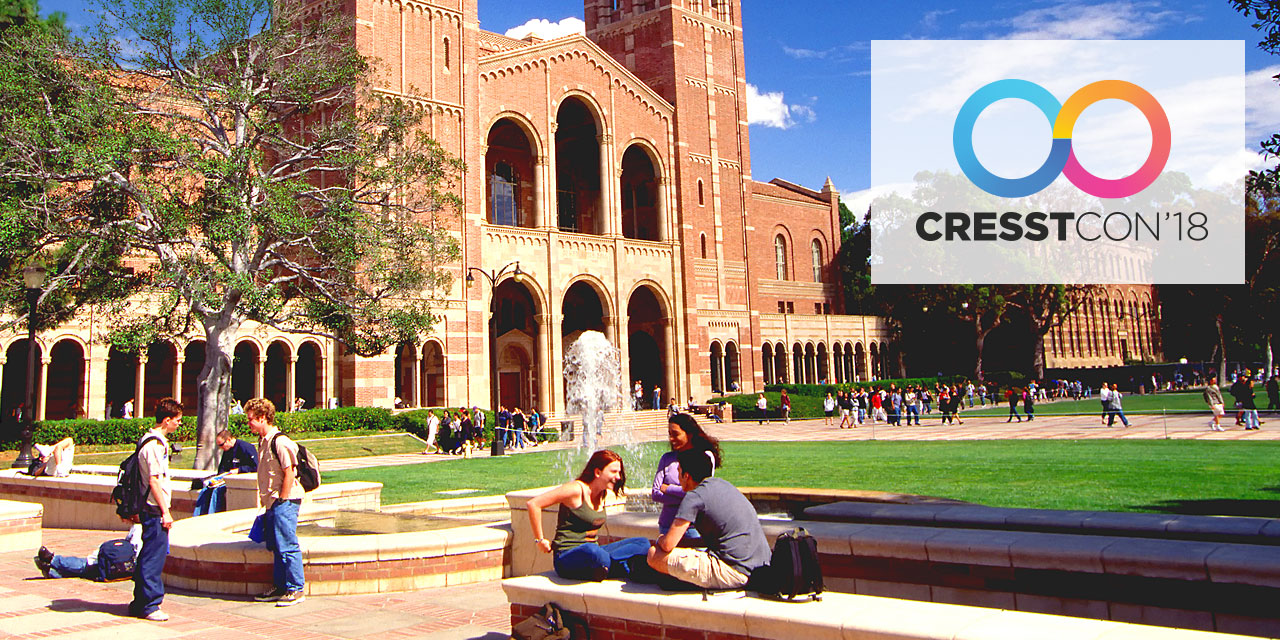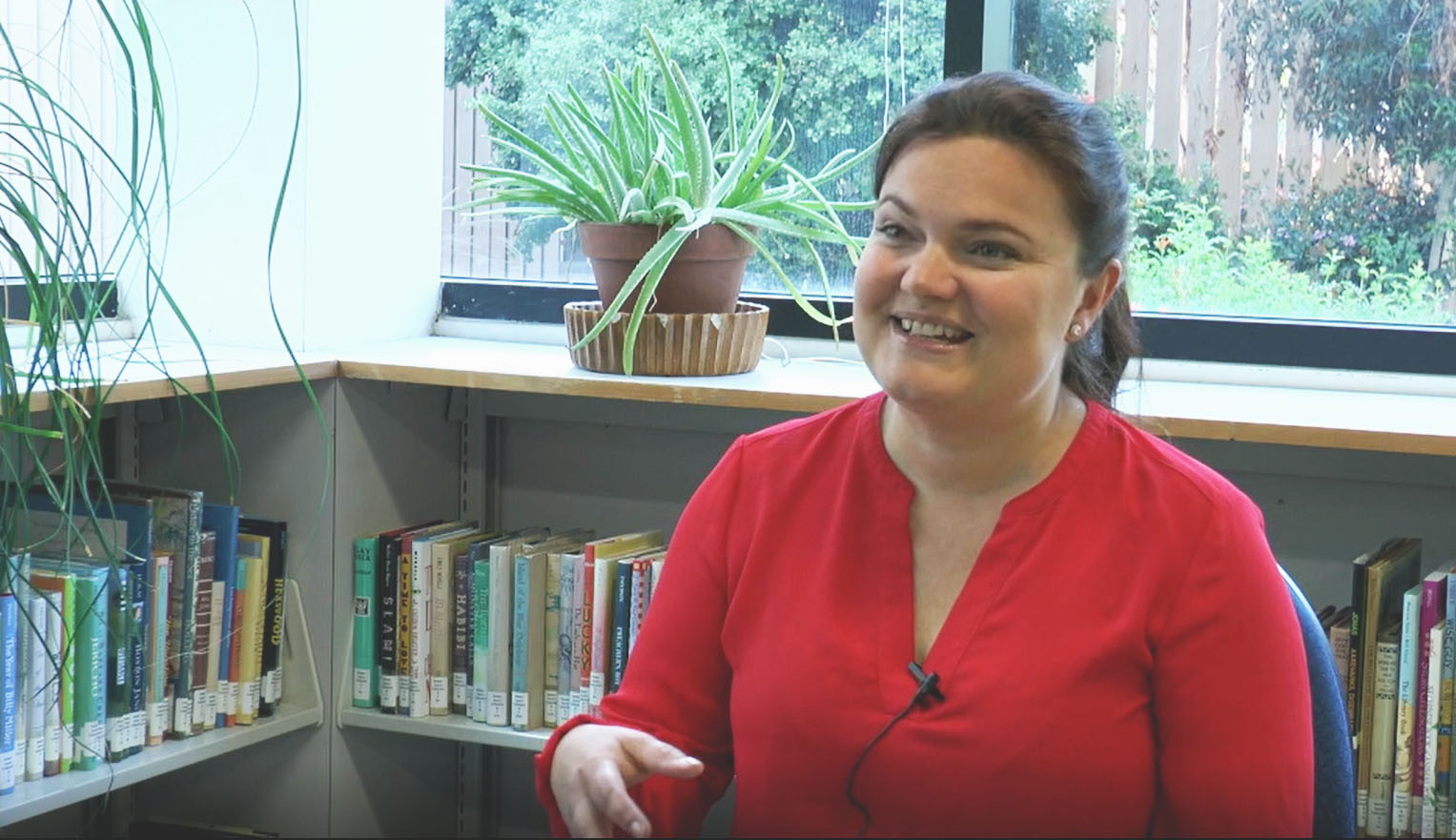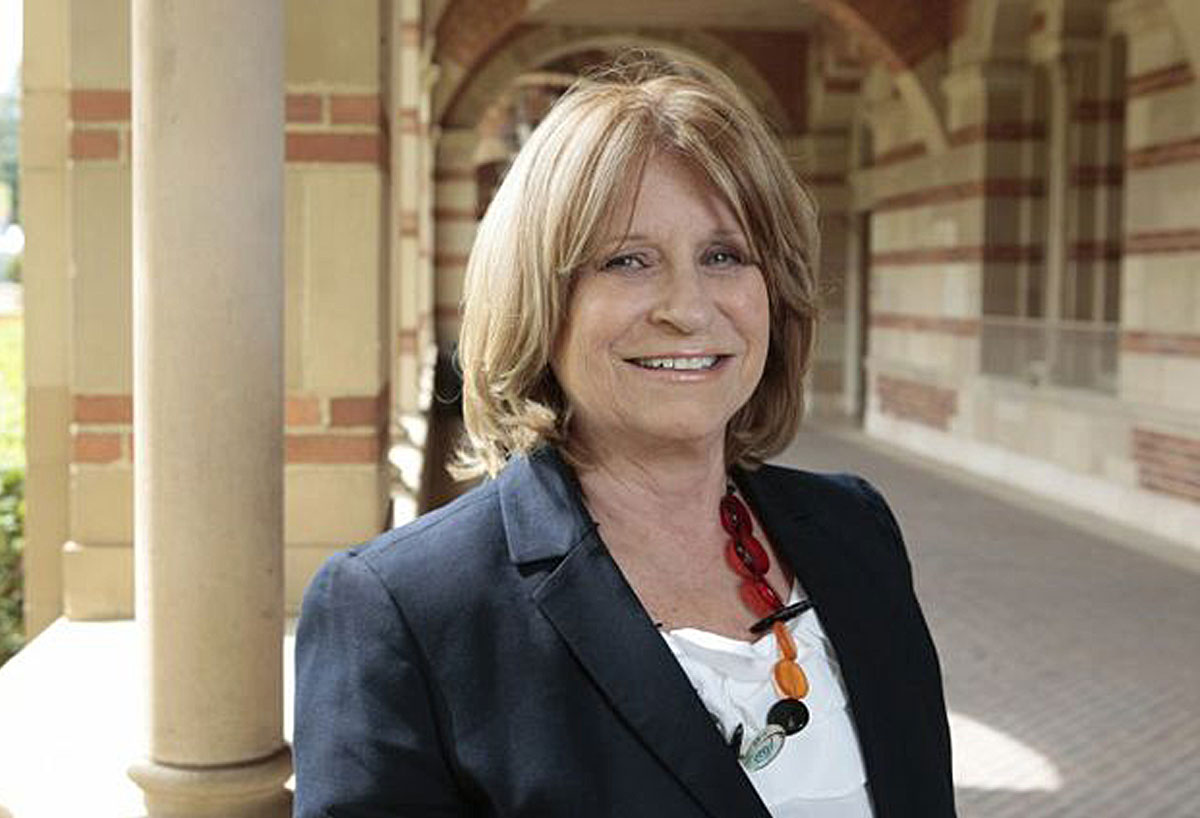Recently I got the chance to sit down with CRESST Director Li Cai to find out about his perspective on CRESSTCON’18 – what he’s most excited about, what makes the conference unique, and what participants can expect at this year’s event.
Q. Can you give me an overview of CRESSTCON?
CRESSTCON is a small gathering of about 100 to 200 people from all over the world: from Europe, South America and North America, Asia, China, and Korea in particular. Everybody is interested in educational assessment, educational evaluation, educational technology, statistics, data mining, and the combination of all those at the frontiers of those disciplines to make a stand to improve outcomes, to improve access, equity, and building partnerships. The conference reaches a wide variety of people. It is not just for the academic types but it’s for industry, practitioners, policy, and foundation types as well.
Q: Could you tell us what the topic is for this year?
The CRESSTCON theme is equity and excellence. There are of course two parts to it. We are very much dedicated to the cause of improving access, improving equity, and improving outcomes for all. At the same time what we’re interested in is to use the most innovative methods, technology, approaches, and design to help achieve the goal of improving access and equity. We are located within the Graduate School of Education and Information Studies, which is known nationally for its stand on social justice, and we have a dean who is well known worldwide for his work on immigration. The conference itself reflects both the center’s work as well as the larger picture we are in.
I think the excellence and equity questions happen wherever you go around the world, and as many of us have done at the center, you see the same kind of questions being asked about how education—as a great equalizer—could provide excellent outcomes, and at the same time you provide equal access to such processes.
Q. What are you personally most excited about for CRESSTCON’18?
I’m most excited, this year, about the fact that we truly have a very broad and diverse representation. We purposefully built a program so that we could have input from a range of different stakeholders—not just all researchers or people with PhDs, not just from the North American context. I think the excellence and equity questions happen wherever you go around the world, and as many of us have done at the center, you see the same kind of questions being asked about how education—as a great equalizer—could provide excellent outcomes, and at the same time you provide equal access to such processes. Of course building that requires partnerships so we’re hitting on the three key words in our conference—building partnerships to improve equity and excellence.
Q: Can you tell us a little bit about the keynote speakers?
The two keynote speakers represent two kinds of perspectives. When you look at a perspective from the researchers, we are looking at dean Marcelo Suárez-Orozco, who as I mentioned, is a well-known scholar on policy issues, and on immigration issues. He talks around the world on such topics, and he is very knowledgeable. If we’re looking at the R&D side, the funder’s point of view, we have had the good fortune of having someone represent the Chan Zuckerberg Initiative. Our second speaker, Bror Saxberg, the Chief Science Officer of the Chan Zuckerberg Initiative, represents the funder’s point of view on learning sciences and on educational technology.
We have these two angles, but I want to add in a third—not necessarily a keynote. There is an affiliated event, the Linn Memorial Award Lecture this year, and we are very lucky to have professor Xin Tao of the Beijing Normal University. He is one of the foremost scholar psychometricians in his country, and at the same time, he is running one of the largest national assessment programs in the world—The National Assessment of Education Quality. They are also the center that does a PISA-type assessment in China. We will be hearing a lot from him about his perspectives from an overseas point of view as well as a technical standpoint.
Q: What can people expect to hear at CRESSTCON?
People will hear a range of topics. Let me begin with the CRESSTCON breakout sessions. Broadly speaking, we will be talking about our work in the civilian sector—K–12 education, educational technology, statistics, and data science—and we’ll also be hearing from graduate students who will talk about their work on all of the above topics, their dissertation research using our data, or their independent research initiatives funded by CRESST research and development grants or contracts. At the same time, we have CRESST senior researchers who will talk about their current empirical work in assessment, evaluation, design and statistics.
Q: Why should people choose to come to CRESSTCON?
People should choose to come to CRESSTCON because it is very special. I like to use an old saying that my colleague and the center’s founding director, Eva Baker, used to say. When I first came to CRESST, she said we are like a boutique shop: we are small—we are small in comparison to very large research and development centers or institutions—but we are innovative. The same is true for CRESSTCON. The kind of things we choose to explore, you don’t normally find at other conferences, and we have a broad international reach. I think that in terms of assessment and evaluation, CRESSTCON frames the technical work, and the related research it showcases, within a broader education perspective. That is why we are interested in public education; ultimately, we would like to ensure that this great equalizer is still in place, thriving and functioning.
Q: Can you tell us about the conference goal of building partnerships?
CRESSTCON is set up to build partnerships among all the key stakeholders of public education ranging from government, the general public—that supports these initiatives—the school systems, practitioners, administrators, policymakers, and academics, to those that are aspiring to be teachers, aspiring to be academics and researchers, to those that are not just in this country, to those that are in the broader education sector including the private industry that might have an interest in applying what they know to improve outcomes. At the same time, we would like to ensure that there is broad representation of philanthropic foundations that might be interested in funding this R&D work. People making these kinds of connections would be very much our hope.
We pride ourselves in arranging these networking sessions. At past conferences, what we learned consistently from the conference’s post-evaluation surveys is that people enjoyed those networking opportunities—the poster sessions, the innovative showcases, the working lunches where people could sit down and talk about their work. I personally have found these opportunities tremendously rewarding in addition to the scientific content.
Q: Can you tell us a little bit about your work and maybe what you’ll be talking about at CRESSTCON?
In terms of the statistics session, we are hoping to talk about some of our current work related to applying innovative statistical models to educational assessment. These are in the broad context of large-scale education surveys in the context of K–12 evaluation systems using assessment data, and there’s a lot of statistical issues as you can imagine. We just completed a four-year IES funded statistical methodology grant, so my colleague Kilchan Choi and I will be talking about some of our findings from that project.
Q: What was one of your favorite parts of CRESSTCON’16?
My favorite part of CRESSTCON’16 was this interactive hands-on demonstration of all the technology that people brought in. This was, as you remember, held in a concurrent location with the poster session, and those two sessions attracted a lot of people. People were talking, they were excited to see all this new technology and new innovation coming up, to see it in front of them. There was quite a bit of enthusiasm, and I think that was the most exciting part for me.
Q: What can participants expect from CRESSTCON’18?
Participants can expect to hear from researchers who are doing cutting-edge research—not just at CRESST but at UCLA broadly and overseas. The participants can expect to have lots of opportunities to expand their network and to talk to people with kindred spirit. The participants can also expect to hear a range of perspectives—from the perspectives of researchers, to those that are located not in the North American context but overseas, to hear the same kind of equity and access questions and excellence questions being asked, and they can hear from foundations who are actively interested in funding R&D to improve outcomes.


